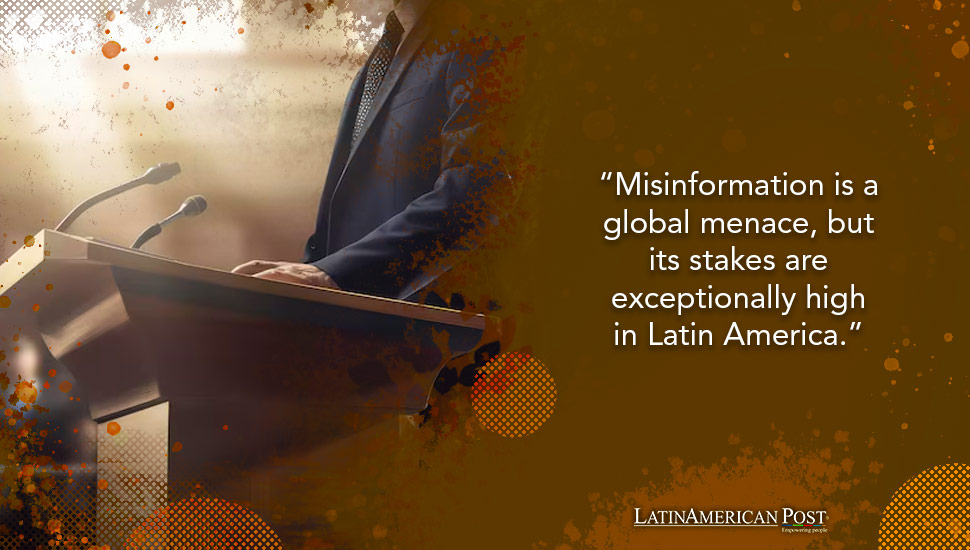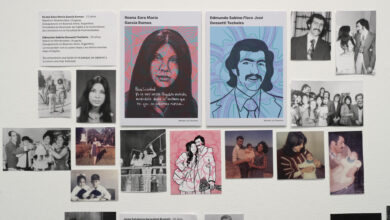Uruguay’s United Battle Against Misinformation is an Example to Follow

In a critical step for democracy, Uruguayan political leaders are uniting against misinformation, forging ethical pacts to ensure electoral integrity and protect the foundational pillars of their democratic institutions.
In the politically vibrant tapestry of Latin America, the recent commitment by Uruguayan political parties to combat misinformation is not just a national milestone but a beacon for the region. This move, encapsulated in the signing of an Ethical Pact, underscores a collective realization: the fight against misinformation is pivotal for the health of democracy. The agreement, endorsed by a spectrum of parties from the ruling Partido Nacional to the leftist coalition Frente Amplio, is a promising stride toward fostering a political climate where truth prevails over falsehood, inspiring hope for a united front against misinformation.
Uruguay’s Proactive Stance
Misinformation is a global menace, but its stakes are exceptionally high in Latin America. The region’s history of political volatility and social unrest amplifies the destructive potential of false narratives. Uruguay’s proactive stance, therefore, is a template for neighboring nations grappling with similar challenges. By pledging to eschew fake news and promote accurate information, these parties are safeguarding not only Uruguay’s democratic fabric but also setting a precedent for the entire region.
The importance of such a pact becomes starkly evident when considering the broader Latin American context. In countries like Brazil and Mexico, misinformation has significantly skewed public perception, influencing election outcomes and public policies. The rampant spread of unverified news during elections has deepened political divides, making constructive dialogue nearly impossible. The scenario is similar in nations like Venezuela, where misinformation is wielded as a political tool, further entrenching authoritarianism and stifling opposition.
The Ethical Pact in Uruguay serves as a countermeasure to these trends, emphasizing the critical role of political parties in curbing the spread of false information. It is a call to action for leaders across the spectrum to prioritize truth and transparency, acknowledging that the stability of their democracies hinges on an informed electorate. The pact also highlights the essential role of the media in this ecosystem, urging journalists to be vigilant gatekeepers of truth.
However, the effectiveness of such agreements lies in their implementation, a challenge that Uruguay’s political parties are well aware of. As Pablo Iturralde, president of the Partido Nacional, pointed out, signing the pact is merely the first step; the real test is in its execution. The parties must embody their endorsed principles, ensuring their political practice aligns with their ethical commitments. This requires a cultural shift within the political landscape, where truthfulness and integrity become the norm rather than the exception. It is a journey that will require continuous effort and vigilance.
Uruguay’s Leadership Opportunity
The potential impact of Uruguay’s Ethical Pact extends far beyond its borders. By successfully navigating the challenges of misinformation, Uruguay could become a leading democracy in Latin America, as Fernando Pereira of the Frente Amplio suggested. This leadership is crucial in a region where the erosion of democratic norms has often led to political and social instability. Uruguay’s commitment can inspire other nations to undertake similar initiatives, fostering a regional alliance against misinformation that not only strengthens democratic resilience but also enhances the region’s collective ability to preserve the integrity of its democratic processes and institutions.
Furthermore, the pact’s emphasis on a ‘permanent mechanism of consultation’ is not just a strategic approach, it is a testament to the commitment and foresight of Uruguay’s political parties. This mechanism can facilitate ongoing dialogue and collaboration among parties, enabling them to respond swiftly to breaches of the agreement and adapt to the evolving landscape of misinformation. It also provides a framework for accountability, ensuring that parties adhere to their commitments and are held responsible for transgressions, instilling confidence in the pact’s effectiveness and longevity.
Uruguay’s initiative offers a hopeful narrative in the broader Latin American context, where political fragmentation often hampers collective action. It illustrates how opposing parties can find common ground in the fight against misinformation, transcending ideological divides for the greater good of democratic governance. Such unity is essential in a region where democracy must be continually nurtured and defended against the pervasive threats of disinformation and authoritarianism.
A Necessity for Democratic Survival
The success of Uruguay’s Ethical Pact could catalyze regional cooperation in combating misinformation. Imagine a Latin America where countries collaboratively develop strategies to counter false narratives, sharing best practices and resources. This cooperative approach could significantly enhance the region’s ability to preserve the integrity of its democratic processes and institutions.
Also read: Uruguay’s Jineteadas Adapt to Modern Times
The joint effort by Uruguay’s political parties to fight misinformation through the Ethical Pact is a critical step in safeguarding democracy. It reflects a broader necessity in Latin America for political actors to collaborate to maintain the sanctity of truth and ensure the democratic process is accessible from the shame of false information. As nations across the region observe Uruguay’s progress, the hope is that they, too, will embark on similar paths, recognizing that in the battle against misinformation, unity is not just a strength but a necessity for the survival and flourishing of democracy.





